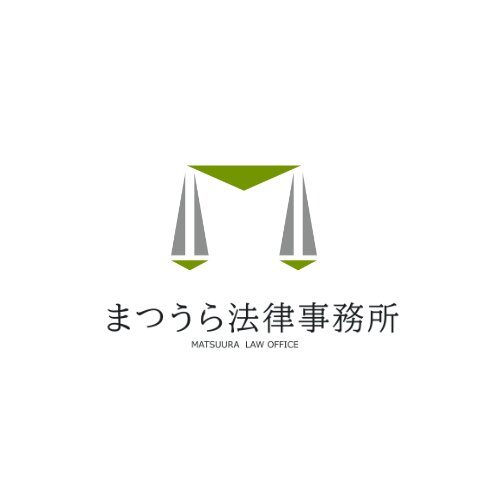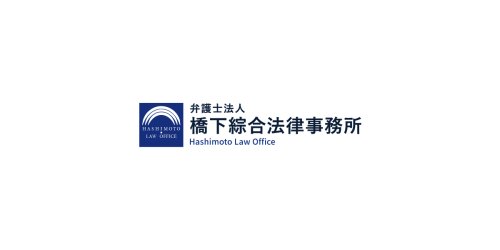Best Probate Lawyers in Japan
Share your needs with us, get contacted by law firms.
Free. Takes 2 min.
Or refine your search by selecting a city:
List of the best lawyers in Japan
About Probate Law in Japan
Probate law in Japan deals with the legal process that takes place after a person passes away, addressing the distribution of their estate according to their will or, if there is no will, in accordance with Japanese inheritance laws. The process involves identifying and inventorying the deceased's property, paying off any debts and taxes, and distributing the remaining assets to the rightful heirs. Japanese probate laws can be complex due to the country's unique blend of traditional customs and modern legal frameworks, making it crucial for individuals to understand the essentials when navigating this process.
Why You May Need a Lawyer
There are several situations where legal assistance might be indispensable in probate matters in Japan. Some common scenarios include:
- Contesting a will: If there are disputes over the validity of a will or its interpretation.
- Complex estates: When the deceased owned substantial assets, businesses, or properties that need expert handling.
- Debt resolution: To address liabilities the deceased may have had, ensuring creditors are paid appropriately.
- International estates: When the estate involves assets or heirs located outside Japan, complicating the proceedings.
- Disputed heirship: When there are disagreements among potential heirs about their shares or legitimacy.
In these situations, a probate lawyer can provide clarity, negotiate on behalf of interested parties, and help streamline the process in accordance with Japanese law.
Local Laws Overview
Probate laws in Japan derive from the Japanese Civil Code and related statutes. Here's a summary of key aspects:
- Inheritance Types: Japan recognizes statutory inheritance and testamentary inheritance. Statutory inheritance follows a legal distribution formula if no will exists, while testamentary inheritance occurs according to the deceased's expressed wishes in a will.
- Koseki System: The Japanese family registry records birth, death, marriage, and other pivotal family events, crucial for determining legal heirs.
- Guardianship and Executors: Executors manage the deceased's estate and execute the will, if present, while guardians may be appointed for minors or incapacitated heirs.
- Inheritance Tax: Japan imposes an inheritance tax, with exemptions depending on the relationship to the deceased and the value of inherited assets.
Understanding these laws can ease the probate process and ensure compliance with legal requirements.
Frequently Asked Questions
1. What is the first step in the probate process in Japan?
The first step is usually the registration of the death in the koseki family registry and then the determination of heirs. The assets must be inventoried, and any existing will should be verified and executed accordingly.
2. Do I need to prove the validity of a will in Japan?
Yes, wills need to be authenticated by the family court unless they are notarial wills, which are already validated by a notary public at the time of creation.
3. How long does the probate process take in Japan?
The timeline can vary widely depending on the estate's complexity, presence of a will, and any disputes. Typically, simpler cases can take several months, while more complicated cases may take years.
4. Can I handle probate without a lawyer in Japan?
While legally possible, it's usually advisable to retain a lawyer, especially if the estate is large, contentious, or involves foreign elements due to the complexities involved.
5. What happens if there is no will?
If there is no will, the estate is distributed according to the statutory succession rules in the Japanese Civil Code, which identifies legal heirs and their entitlement shares.
6. Who are the legal heirs according to Japanese law?
Spouses and children are primary heirs. If there are no children, parents, siblings, and more distant relatives may inherit as per the legal succession hierarchy.
7. How is inheritance tax calculated?
Inheritance tax in Japan is calculated on a progressive scale based on the total value of the estate and the heirs' relationship to the deceased. There are exemptions available which reduce the taxable value.
8. Can a will exclude legal heirs?
Japanese law mandates that primary heirs such as spouses and children receive a certain share of the estate, called the "reserve portion," which cannot be completely nullified by a will.
9. Can foreigners inherit property in Japan?
Yes, foreigners can inherit property in Japan, but there may be legal steps necessary to manage cross-border complications and enforce foreign inheritance rights.
10. What is the role of an executor in Japan?
The executor is responsible for administering the estate, ensuring all debts and taxes are paid, and distributing the assets to the heirs as directed by the will or law.
Additional Resources
For more information and assistance, consider contacting the following resources:
- Japanese Judicial Support Center (Houterasu): Offers legal guidance and support for individuals dealing with inheritance issues.
- Local Bar Associations: Provide referrals for probate lawyers with experience in Japanese inheritance law.
- Public notaries: Can assist in authenticating wills and handling administrative tasks related to probate.
Next Steps
If you find yourself in need of legal assistance for a probate matter in Japan, it's best to:
- Identify the assets and potential heirs involved.
- Gather any existing legal documents, such as wills or family registry documents.
- Consult with a probate lawyer to understand your legal position and rights.
- Engage with local legal resources, like the Japanese Bar Association, for lawyer referrals tailored to your circumstances.
Taking these steps can help ensure a smooth probate process and protect the interests of all parties involved.
Lawzana helps you find the best lawyers and law firms in Japan through a curated and pre-screened list of qualified legal professionals. Our platform offers rankings and detailed profiles of attorneys and law firms, allowing you to compare based on practice areas, including Probate, experience, and client feedback.
Each profile includes a description of the firm's areas of practice, client reviews, team members and partners, year of establishment, spoken languages, office locations, contact information, social media presence, and any published articles or resources. Most firms on our platform speak English and are experienced in both local and international legal matters.
Get a quote from top-rated law firms in Japan — quickly, securely, and without unnecessary hassle.
Disclaimer:
The information provided on this page is for general informational purposes only and does not constitute legal advice. While we strive to ensure the accuracy and relevance of the content, legal information may change over time, and interpretations of the law can vary. You should always consult with a qualified legal professional for advice specific to your situation.
We disclaim all liability for actions taken or not taken based on the content of this page. If you believe any information is incorrect or outdated, please contact us, and we will review and update it where appropriate.
Browse probate law firms by city in Japan
Refine your search by selecting a city.
















